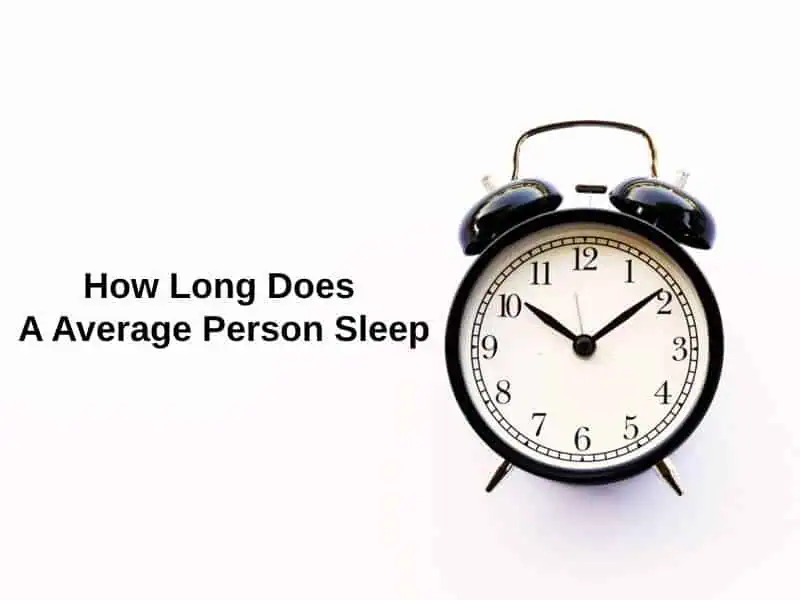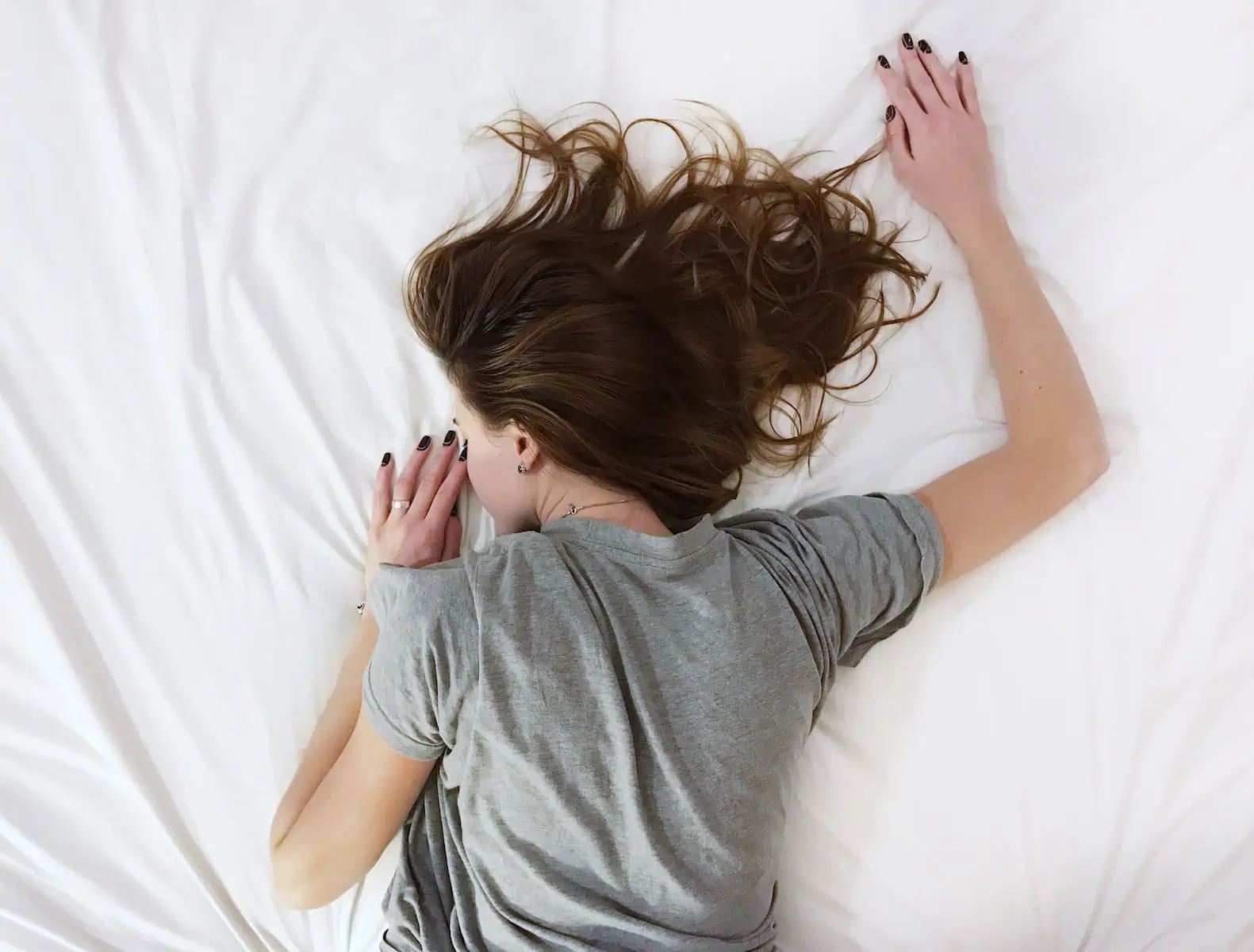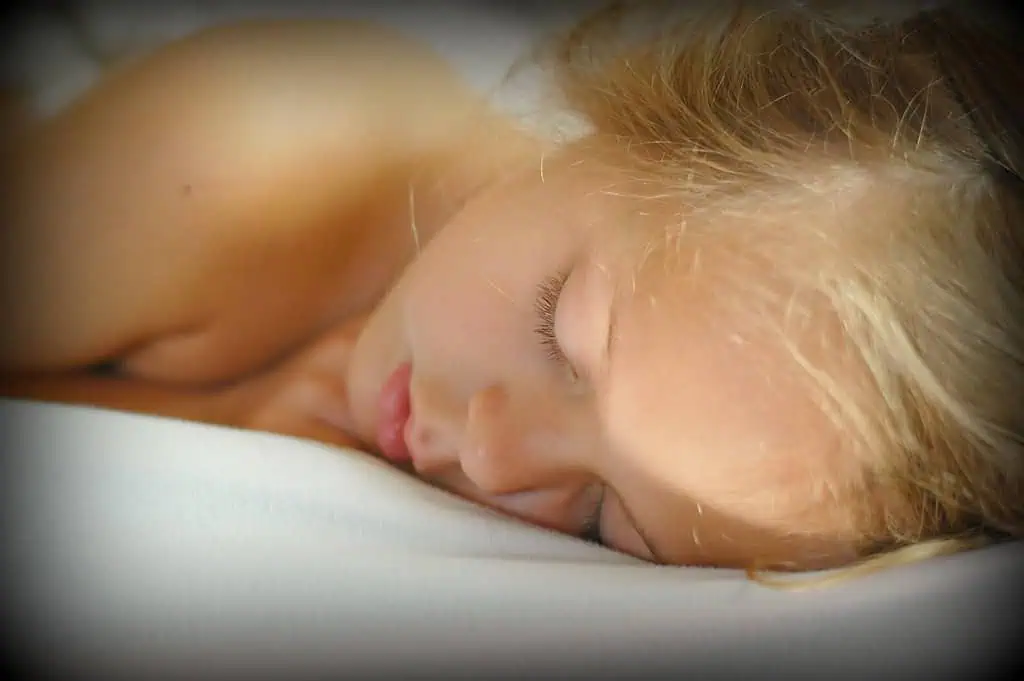Exact Answer: 7-9 Hours Per Day
Sleep is an essential part of human life. Our body needs to take rest from its regular activities like digestion. Sleep can be defined as a state of absence of mindfulness. People across the world have different sleeping habits. When a person is loaded with heavy work, he may feel tired and needs more sleep than an average human.
Moreover, genes also play an essential role in sleeping patterns. Many sleeping disorders occur due to the distortion in sleeping habits. The sleeping mechanism includes two internal mechanisms, namely Circadian rhythms and Sleep-wake homeostasis. These processes work together to regulate the functions of your body between sleep and awake.

How Long Does A Average Person Sleep
The lifestyle of every person may vary from one another. It is easily understood by considering a student and a working professional. The amount of energy, food, or rest needed by an individual would also vary. When we are taking a rest, we should do it entirely until we feel fresh after waking. It indicates that the person has taken complete rest.
When a person is going to bed, it takes nearly 5-20 minutes to fall asleep. It depends on the type of environment we are sleeping in. It takes roughly seven minutes to get to sleep for an average adult who is working. If a person is too tired, he may fall asleep in nearly two minutes. People who do physical work are more likely to fall asleep very fast when compared to ordinary people.
If a person is undergoing sleeping complications due to various problems, he takes more time to sleep. Generally, an average adult requires seven to nine hours of sound sleep, depending upon the individual. For babies under age five, the time taken to sleep will be 11-14 hours per day.
An interesting fact about sleeping in humans is that they spend one-third of their life in sleep. The record for the longest time taken to remain in a condition of sleep is approximately eleven days. Doing physical exercise can increase sleepiness; hence it is advised to do some exercise regularly.

| Age Group | Sleeping Time |
| Infants | 12-16 Hours |
| Adults | 7-9 Hours |
| Older Adults | 7-8 Hours |
Why Does A Average Person Sleep That Long
Sleep is essential for people to enhance overall health. It helps the brain to release toxic waste while sleeping. It also increases glycogen levels in the brain. A night of deep sleep will improve the overall functioning of the brain. We indeed sleep to provide some rest to the brain to abstain from thinking.
Melatonin is a hormone that is responsible for the control of sleep. It is released during the nighttime. The hormone can also be used in the short term as a dietary supplement for insomnia. Melatonin is released in response to the darkness around us.
From recent studies, it is apparent that most working people are getting only five or six hours of sleep which is not enough to regain our strength. It will create long-term health issues like diabetes, cardiac diseases, and many more. The time taken for an average person to perform all the activities during sleep may be considered eight hours.
Many people who are deprived of sleep will experience depression, emotional breakdown, lack of peace, and more mental conditions. These problems, in turn, affect the working abilities of that person. Generally, a person requires enough sleep such that the brain functioning is regained after too much work.

Hence an average person needs to sleep for eight hours. If he is deprived of sleep regularly, then he may be prone to physical or mental illness. Babies too need several hours of sleep when compared to adults because they require more energy.
Conclusion
As we find many theories related to sleep, uses, and origins, no one explains the exact phenomenon. However, they may be considered in the initial stages to discuss any possible outcomes. The sleep cycles which we experience during asleep are responsible for the results we gain after waking up.
As the organisms sleep, the energy we need to spend at night time will reduce. This can be seen as a conservation of energy. While a person’s working conditions play an essential role in the sleeping time of a person, genes also became a critical factor in sleep theories.